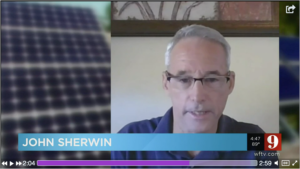 FSEC’s John Sherwin advises against signing any door-to-door contract the same day and says, “…like any other contractor, Todd, you want to get multiple quotes, you want to see where they are coming with their numbers.”
FSEC’s John Sherwin advises against signing any door-to-door contract the same day and says, “…like any other contractor, Todd, you want to get multiple quotes, you want to see where they are coming with their numbers.”
https://www.wftv.com/news/action9/i-have-been-totally-taken-advantage-high-cost-free-solar/W56B4URTZFDC3LUOAZVF6HHIO4/